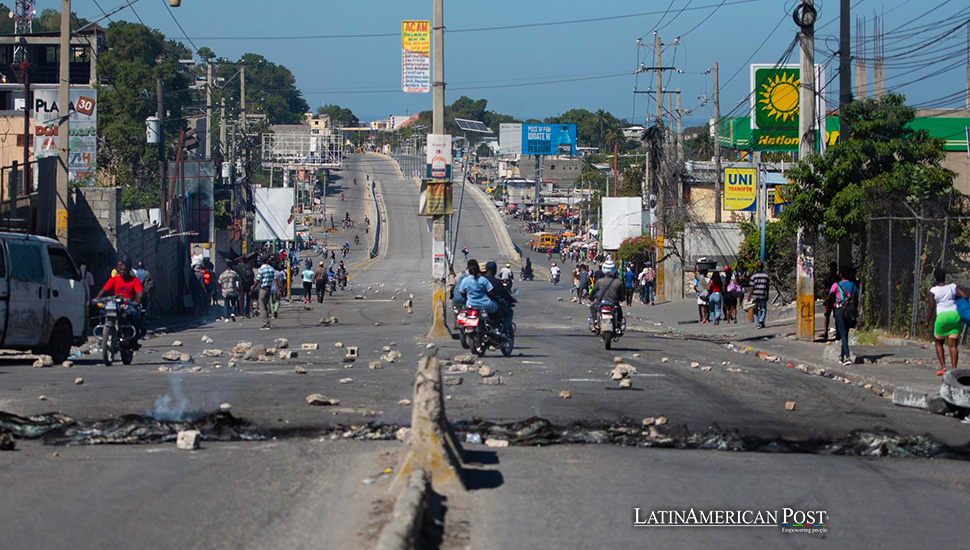Death Count in Haiti’s Gang Conflicts Surges to Almost 5,000 Annually

In Haiti, gang violence has alarmingly surged, with killings increasing by 110% last year, exposing deep-seated issues in the country’s law enforcement and political stability.
Crisis Escalates: Gang Violence Surges in Haiti
Haiti, a nation long grappling with political instability and poverty, now faces an escalating crisis of gang violence. United Nations Secretary-General Antonio Guterres, in a recent report, has highlighted a staggering increase in violence, with the number of people killed rising by more than 110% last year, reaching a harrowing total of 4,789 deaths.
This surge in gang-related violence, kidnappings, and sexual assaults, particularly against women and young girls, underscores a worsening security situation in Haiti, marked by widespread impunity and a failure of state mechanisms to protect its citizens.
Guterres expressed his profound alarm at the level of gang violence, which has not only intensified in urban areas but also spread to rural regions, further destabilizing the country. This expansion of gang influence to key farmlands poses a significant threat to Haiti’s food security and economic stability. The situation is exacerbated by the fact that the Haitian police force, already outgunned and outnumbered, has been unable to effectively counter the gangs’ growing power and territorial control.
Manpower Shortage and Attacks on Stations
The report sheds light on the dire state of the national police force, which now counts just 13,196 personnel following the departure of over 1,600 officers in 2023.
This manpower shortage is further compounded by the fact that one in ten police stations nationwide has been attacked, and many of the force’s armored vehicles have been rendered inoperable after clashes with gangs.
Complicating the situation is the gangs’ tactic of wearing fake police uniforms to carry out kidnappings, eroding public trust in law enforcement and fueling a cycle of fear and violence. The report noted a shocking 83% increase in kidnappings, with 2,490 incidents recorded over the year.
Forced Repatriation and Soaring Kidnappings
These kidnappings, often targeting people traveling not only north but increasingly south from the capital, have forced many victims to sell their homes and take loans to pay ransoms, plunging them into financial despair.
The humanitarian impact of this crisis is profound. The U.N.’s migration agency estimates that over 206,000 people were forcibly repatriated to Haiti throughout the year, 96% of whom came from the neighboring Dominican Republic. In September, the Dominican Republic’s tightened border controls resulted in the repatriation of 23,000 people in that month alone.
Additionally, the number of Haitian migrants entering Honduras, hoping to travel north, has skyrocketed, increasing 23-fold from July to October.
Families Struggle Amidst Violence and Displacement
Amidst this backdrop of violence and displacement, families in Haiti hosting friends and relatives who lost their homes are facing an enormous burden. The country, already the poorest in the Western Hemisphere, is marking its fifth year of recession, with soaring food prices exacerbated by gangs extorting illegal taxes and blocking off transportation routes.
This situation not only undermines the economic stability of individual households but also threatens the broader socio-economic fabric of the nation.
International Call for Support: Guterres Urges Global Assistance
In response to this crisis, Guterres has called for international support. He urged countries to contribute generously to a voluntary international force ratified by the U.N. late last year to support the Haitian police. This appeal reflects the urgent need for external assistance in bolstering Haiti’s capacity to combat gang violence and restore order.
Also read: Guayaquil Rises: Resilience Amidst Crisis in Ecuador’s Economic Hub
The gravity of the situation in Haiti today cannot be overstated. The convergence of political, security, human rights, and humanitarian challenges presents a complex and daunting landscape. The escalating gang violence is not just a symptom of law enforcement challenges but also reflects deeper issues related to political instability, economic hardship, and social inequality.
The international community’s role in providing support, coupled with a concerted effort by the Haitian government to address these systemic issues, is critical in stemming the tide of violence and paving the way for a more stable and secure Haiti. The path forward will require a multifaceted approach, addressing the immediate security concerns and the underlying factors contributing to the country’s ongoing crisis.




